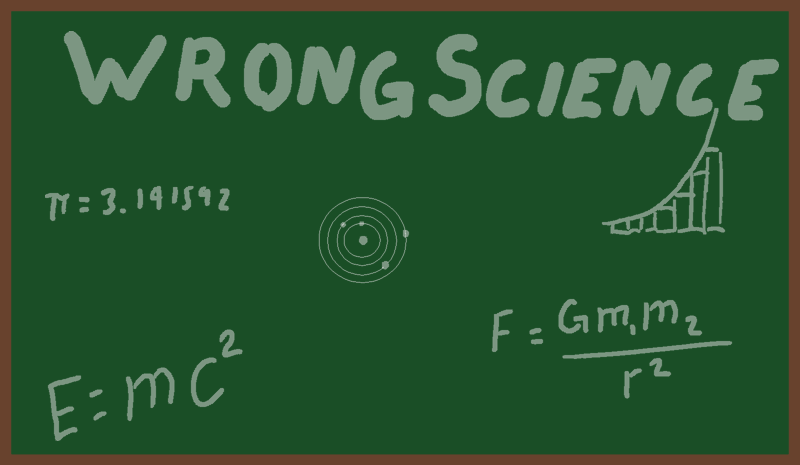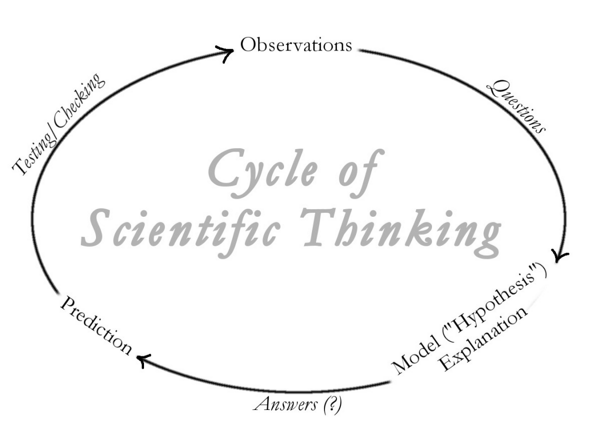
People often rebuke what i say, telling me of how far science has come. Of how sure we are of many "scientific" facts. Of how solid the "scientific method" is.
They often follow this up with "your dumb", "you need to go back to school", "come back when you've learned something"
These people do not realize that i have gone through the science programs, and learned was indoctrinated with, all kinds of things, that i later had to unlearn.
The biggest thing, concerning us humans moving forward with scientific learning is, many of our base assumptions are wrong.
So many that it would be best just to start again from square one.

Things can be observed
One of the first assumptions in science, and it really should be stated in science books, on the first page, is that "we assume that we can make an observation with affecting the observed.
It is right there in the scientific method.

However, from the Double Slit Experiments we have found out that the observer affects the outcome of the experiment.
From Quantum Physics experiments, we have found that the observer can effect the types of outcomes based on what they expect.
From Random (dice) Experiments we have found that the observer can effect the randomness of an outcome.
The observer is intrinsically a part of the observation. And in experiments going forward, we will need to know the experimenter's mood, and expectations.
"If a tree falls in the woods, and no one is there to hear it, does it make a sound?"
This is a very profound philosophy question. However, in the last 50 years or so, science has scoffed at anyone who would believe the tree makes no sound. "Because, it is a tree, and it crashes to the ground, and so, therefor makes a sound. Its all simple physics!", they shout.
However, experiments in quantum physics show that if the results aren't stored/observed, it never happened. Atoms only exist when we look for them.

Things are real
Another aspect of the tree falling in the woods is that the scientific community firmly believed that they can observe something without affecting it, but also, that the thing they are observing is real.
The scientists couldn't even imagine that things may not be real. Here is this rock! Bang, bang, bang. See? It is real.
And then comes the idea that this universe is just a simulation. And, in this theory, it could be that none of this is real. It is just transmitted into our brains. The Matrix movie, just the latest in a long line of science fiction stories, did a great job exploring the ideas of what is real.
An atom is 99% "empty space" (it is not, but that is another post). How close is that to just being, not there?
Modern Materialistic Physics believes that things are real. Physics is real, and metaphysics is a bunch of hocus pocus, and is not real.
However, we will find that the line between physics and metaphysics is a scale. And we will learn to work with things, like bringing an idea down into plasma, and then into a physical form.
We will find that thoughts have weight and energy. We can no longer assume that things fall into two camps, real or imaginary.

Physics is static
Modern Materialistic Physicists believe that the laws of the universe are fixed, real, and do not change.
However, this is all completely wrong. And we will find this out when aliens come to visit, and we find out their tech does not work for us as it works for them.
I have been told that we just live in the base state of physics, and there is other states we can be in/move ourselves into. Such as, creating a field/area where nuclear bombs do not explode.
We currently believe the speed of light is a constant. However, our measurements over the years have shown it to keep changing. To bad we stopped measuring it, understanding the changes happening to light may be really important for our understanding of physics.
We just don't know. In another galaxy, the laws of physics could be completely different. And that is why galaxies are (mostly) separated. But, we better start discussing this aspect of physics, so that we don't end up rewriting, our just rewritten physics text books.

We are just a bunch of bouncing balls
This is the biggest thing, the biggest assumption that modern, atheistic, materialistic, physicists believe today.
That we are just a collection of atoms. And there is nothing special about atoms. Just their atomic numbers. That is all. They are all interchangeable.
However, from another perspective, every atom has a piece of God. The atom is a collection of focussed thought. And God knows every atom by name. The Bible tells us that God is everywhere, and in all things. Or, we could say every atom is a piece of consciousness.
We will find that trees are conscious. And then we will find that rocks are conscious. It is the conscious that makes up the universe. So, an atom isn't just an atom like any other atom.
We will discover all of this as we put back together physics and metaphysics.
The "big bang", and that galaxies and solar systems just randomly emerged from giant clouds of hydrogen is just silly. There is way, way, way, way too much order in the universe for it to just be random. However, the atheists insist that it has to be random. "There has to be no God!"
"The heavens display his handiwork"

If you apply all of these to modern materialistic physics, you find that the entire text book is pretty much completely useless. We will have to go back and re-examine, and/or re-perform so many of the experiments.
These things don't just change the results, they change how we see the experiment, they change how we interpret the results.
It will be a marvellous time for new physicists. It will be a horrifying time for those who will not give up their space in the ivory towers.
And it will be a wonderful time for new inventions. New inventions that just destroy physics as we know it. Like, we are just going to start ignoring gravity. And that will disprove Newton and Einstein. However, once we get rid of those constraints, we will start really discovering they physics.
